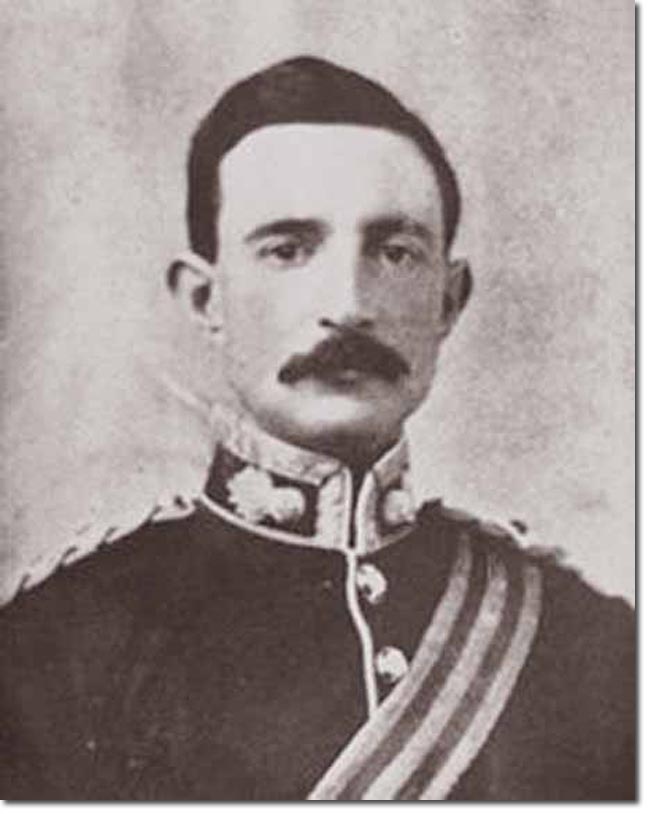|
|


|
|
Charles FitzClarence was born on 8th May 1865 at Bishopscourt in County Kildare. He was of royal blood, being the grandson of George FitzClarence, illegitimate son of King William IV. Another illegitimate son of the king, Frederick FitzClarence, had been CO of the regiment from 1825 to 1832. As a captain in the Royal Fusiliers he won the VC for his acts of bravery in the Boer War:
On the 14th October, 1899, Captain FitzClarence went with his squadron of the Protectorate Regiment, consisting of only partially trained men, who had never been in action, to the assistance of an armoured train which had gone out from Mafeking. The enemy were in greatly superior numbers, and the squadron was for a time surrounded, and it looked as if nothing could save them from being shot down. Captain FitzClarence, however, by his personal coolness and courage inspired the greatest confidence in his men, and, by his bold and efficient handling of them, not only succeeded in relieving the armoured train, but inflicted a heavy defeat on the Boers, who lost 50 killed and a large number wounded, his own losses being 2 killed and 15 wounded. The moral effect of this blow had a very important bearing on subsequent encounters with the Boers. On the 27th October, 1899, Captain FitzClarence led his squadron from Mafeking across the open, and made a night attack with the bayonet on one of the enemy's trenches. A hand-to-hand fight took place in the trench, while a heavy fire was concentrated on it from the rear. The enemy was driven out with heavy loss. Captain FitzClarence was the first man into the position and accounted for four of the enemy with his sword. The British lost 6 killed and 9 wounded. Captain FitzClarence was himself slightly wounded. With reference to these two actions, Major-General Baden-Powell states that had this Officer not shown an extraordinary spirit and fearlessness the attacks would have been failures, and we should have suffered heavy loss both in men and prestige. On the 26th December, 1899, during the action at Game Tree, near Mafeking, Captain FitzClarence again distinguished himself by his coolness and courage, and was again wounded (severely through both legs). When the Irish Guards was formed in Oct 1900 he transferred from the Fusiliers and became a major in 1904, commanding the 1st Battalion Irish Guards in July 1909. In the First World War he commanded the 1st Guards Brigade in the BEF. He acted decisively in October 1914 when overwhelming numbers of Germans attacked the trenches north of Gheluvelt and 'saved the day' by rallying the troops and counter-attacking on 31st Oct. But on 12th Nov 1914 he ordered another counter-attack which was less successful and he was killed, at Polygon Wood, Zonnebeke. He was 49 and held the rank of Brigadier-General. His wife, Violet Spencer-Churchill, whom he married in 1898, survived him and died in 1941. They had two children, Edward, who became 6th Earl of Munster, and Joan Harriet FitzClarence. |
Armed Forces | Art and Culture | Articles | Biographies | Colonies | Discussion | Glossary | Home | Library | Links | Map Room | Sources and Media | Science and Technology | Search | Student Zone | Timelines | TV & Film | Wargames